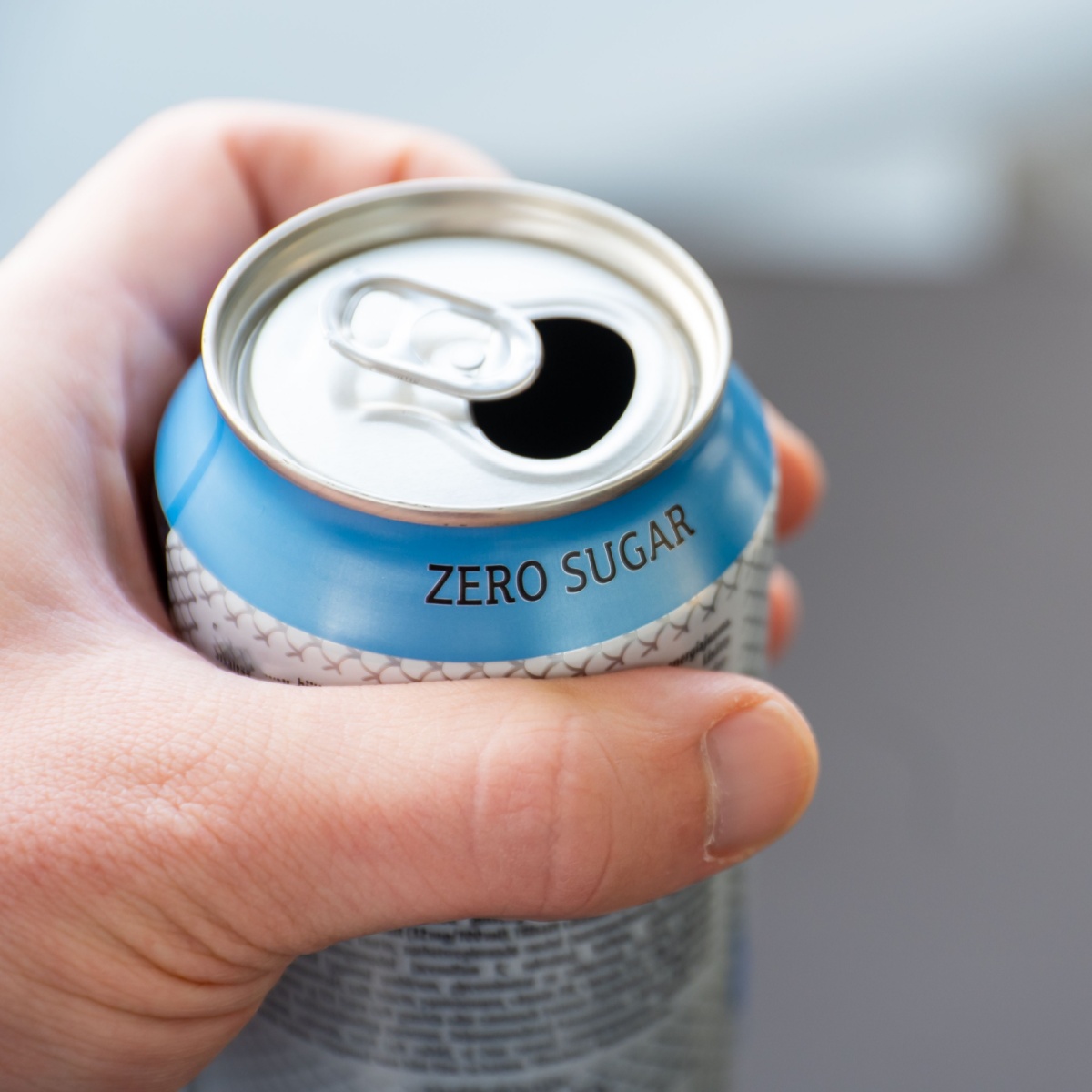
1. Diet Soda
Diet soda has been branded as a healthier alternative to regular soda, but that doesn’t make it any healthier. Although it does contain fewer calories, the artificial sweeteners and other harmful ingredients in diet soda can negatively impact brain health.
Dr. Robert Love, a neuroscientist on TikTok who has over 2M followers on the app, says, "Most diet soda is sweetened with something called aspartame. Aspartame is not good for your gut bacteria,” he says. He also adds that most aspartame “is associated with a lot of negative side effects, including cancer in animals."
So how does this affect your brain? "The research shows that consuming aspartame, specifically diet soda, is associated with an increased risk of type 2 diabetes, and type 2 diabetes is very harmful for the brain,” he notes.
He explains that anything that can increase the risk of diabetes can also increase the risk of Alzheimer’s disease.
2. Sports Drinks
Next one on Love’s list is sports drinks or any high-sugar drinks.
Many health and fitness enthusiasts turn to sports drinks as a way to stay hydrated and assume it’ll freshen them up after a sweaty workout.
But sports drinks are actually full of sugar and even artificial colors.
Dr. Love highlights the hidden dangers these drinks pose in a separate TikTok: "Sports drinks are either high in sugar or high in artificial sugars, and both of those can be damaging to your brain."
3. Alcohol
Individuals who drink excessive alcohol may experience more anxiety over time, especially when they’re experiencing withdrawal symptoms. Many experts also suggest that heavy alcohol consumption is linked to a higher risk of developing Alzheimer’s and dementia.
"Excessive alcohol is a big one. Some clients initially used alcohol to calm their anxiety, but over time, it actually made things worse. It can damage parts of the brain linked to memory and emotional regulation, especially with regular use," says Ehab Youssef, a licensed clinical psychologist, mental health researcher, and writer at Mentalyc.
4. Frozen Dinners
Frozen dinners usually lack essential nutrients, which are needed for maintaining brain health. This can lead to increased cognitive impairment over time. Many of these meals are also filled with artificial additives, preservatives, and food dyes, which can further disrupt brain chemistry and lead to mood disorders such as anxiety.
"Highly processed foods, like frozen dinners, don’t just lack nutrients; they actively harm brain health. Several of my clients who switched away from these saw improvements not just in their physical health but in their mood and thinking, too," says Youssef.
5. Refined White Bread
Diets high in refined carbs, including white bread, can promote inflammation in the body. Chronic inflammation is a risk factor for both anxiety and neurodegenerative diseases like Alzheimer’s.
"Refined carbs like white bread might feel comforting at the moment, but they’ve been linked to increased anxiety and even cognitive decline. I’ve had clients who relied on these during stressful times, only to notice it actually made them feel worse," Youssef notes.
6. Packaged Snacks
Similar to other processed, packaged items, these snacks, such as chips, cookies, and crackers, are loaded with preservatives, artificial ingredients, and unhealthy fats. These snacks are highly addictive as well, which leads to poor dietary choices, thus adding to mental and cognitive decline and a potentially unhealthy relationship with food.
"Even though packaged snacks are convenient, the average snack is loaded with artificial fats and sugar, which are known to promote chronic inflammation that can negatively alter the functions of the brain as well. Besides, daytime snacking is often a great contributor to overeating and a greater risk of developing chronic conditions that can affect brain function," says Dr. Michelle Dees, a board-certified psychiatrist at Luxury Psychiatry Medical Spa.
7. Instant Noodles
Instant noodles are a concoction of unhealthy ingredients in one packaged meal. The noodles are often made with refined flour, and the high sodium content is a cause for concern because it can lead to hypertension. This could potentially damage blood vessels and reduce blood flow to the brain.
Dees states, "High in sodium and additives instant energy, instant noodles have a negative effect on blood pressure and hydration, which can lead to increased stress levels. These meals are devoid of vital elements required to promote brain activity and therefore encourage mental exhaustion."


